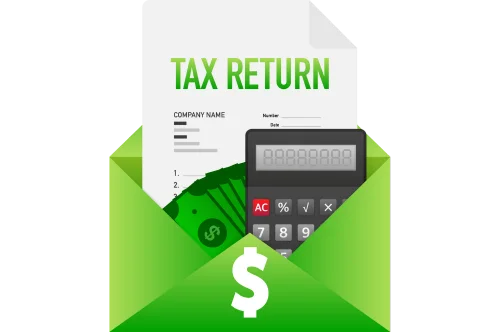Capital Gains Tax on Property Sales: Everything You Need to Know
When selling a property, understanding Capital Gains tax on property sales implications is critical to financial planning. One key aspect to consider is Capital Gains Tax on Property Sales, a tax levied on the profit earned from selling a property. This blog will provide an in-depth look into the mechanics of capital gains tax, how it is calculated, and strategies to minimize your tax liability.
What is Capital Gains Tax?
Capital Gains Tax is the tax on the profit or “gain” made when a capital asset, such as real estate, is sold. In the context of property sales, it applies to the difference between the selling price and the purchase price of the property, adjusted for specific factors.
Types of Capital Gains
Capital gains from property sales are classified into two types based on the holding period:
Short-Term Capital Gains (STCG)
- Applicable when the property is held for less than 24 months before sale.
- Gains are added to your income and taxed according to your applicable income tax slab.
Long-Term Capital Gains (LTCG)
- Applicable when the property is held for more than 24 months.
- Taxed at a flat rate of 20% with indexation benefits.
How to Calculate Capital Gains Tax on Property Sales
The formula to calculate capital gains is straightforward but involves some nuances:
Short-Term Capital Gains (STCG):
STCG = Sale Price – (Purchase Price + Transfer Expenses + Improvement Costs)Long-Term Capital Gains (LTCG):
LTCG = Sale Price – (Indexed Purchase Price + Indexed Improvement Costs + Transfer Expenses)- Indexed Purchase Price: Original purchase price adjusted for inflation using the Cost Inflation Index (CII).
- Indexed Improvement Costs: Expenses incurred for property improvements, adjusted for inflation.
Exemptions Under Capital Gains Tax
To encourage reinvestment, the Income Tax Act offers several exemptions for taxpayers under specific sections:
Section 54: Reinvestment in Residential Property
- Exemption is available if the capital gains from the sale of a property are reinvested in purchasing or constructing a new residential property within specified timelines.
- The exemption amount is either the capital gain or the investment made, whichever is lower.
Section 54EC: Investment in Bonds
- Exemption is available by investing capital gains in government-approved bonds, such as REC or NHAI bonds.
- The maximum investment eligible for exemption is ₹50 lakh within six months of the property sale.
Section 54F: Sale of Any Asset Other Than Residential Property
- If the proceeds are reinvested in residential property, a full exemption is available, provided no other residential property is owned (except the newly purchased one).
Important Considerations for Non-Residents
For non-residents, Capital Gains Tax on Property Sales applies with additional considerations:
- Tax is deducted at source (TDS) at the applicable rates for property sales by non-residents.
- Indexation benefits are available for LTCG.
- Special rates and exemptions under double taxation avoidance agreements (DTAA) may apply.
Strategies to Save on Capital Gains Tax
1. Reinvest the Gains in Real Estate
- Utilize Section 54 or Section 54F benefits to reinvest in residential property.
- Ensure compliance with the timelines to avoid losing exemptions.
2. Opt for Indexed Cost Calculation
- Leverage the benefit of indexation to adjust the purchase and improvement costs for inflation.
- This reduces the taxable gain significantly.
3. Invest in 54EC Bonds
- Investing in government-approved bonds can help you defer and reduce your tax liability.
- Ensure investments are made within six months from the sale date.
4. Use Capital Loss to Offset Gains
- If you have incurred a loss from other capital asset sales, use it to offset your gains from property sales.
Examples of Capital Gains Tax Calculation
Case 1: Short-Term Capital Gain
- Purchase Price: ₹50,00,000
- Sale Price: ₹70,00,000
- Improvement Cost: ₹5,00,000
- Transfer Expenses: ₹2,00,000
STCG = ₹70,00,000 – (₹50,00,000 + ₹5,00,000 + ₹2,00,000) = ₹13,00,000
Tax is calculated based on the individual’s income slab.
Case 2: Long-Term Capital Gain with Indexation
- Purchase Price (2005): ₹30,00,000
- CII (2005): 117
- CII (Sale Year): 331
- Improvement Cost (2015): ₹10,00,000
- CII (2015): 254
- Sale Price: ₹80,00,000
Indexed Purchase Price = (₹30,00,000 × 331) ÷ 117 = ₹84,87,179
Indexed Improvement Cost = (₹10,00,000 × 331) ÷ 254 = ₹13,03,937
LTCG = ₹80,00,000 – (₹84,87,179 + ₹13,03,937) = Loss of ₹17,91,116
In this case, no LTCG tax is applicable.
Common Pitfalls to Avoid
- Failing to reinvest the capital gains within the prescribed timelines.
- Not maintaining proper documentation of property purchase and improvement expenses.
- Ignoring the benefits of indexation.
Conclusion
Understanding and effectively managing Capital Gains Tax on Property Sales is crucial for property owners. With proper planning, you can minimize your tax liability and maximize savings. Stay informed about the latest tax laws and consult a tax professional to navigate complex situations confidently.
Our Tax Services

ITR Filing
ITR Filing services provide full assistance with Income Tax Return submissions, ensuring accurate and timely compliance with all tax regulations and statutory requirements for both individuals and businesses.

Tax Audit
A tax audit reviews financial records to ensure compliance with tax laws, verifying income, deductions, and expenses. It minimizes errors and helps businesses avoid penalties, ensuring accurate tax reporting.

E-Commerce Tax Services
Navigating taxes as an e-commerce seller can be challenging due to the unique complexities of online businesses. Here’s a quick overview of the essential tax services that can help simplify compliance and optimize tax savings



